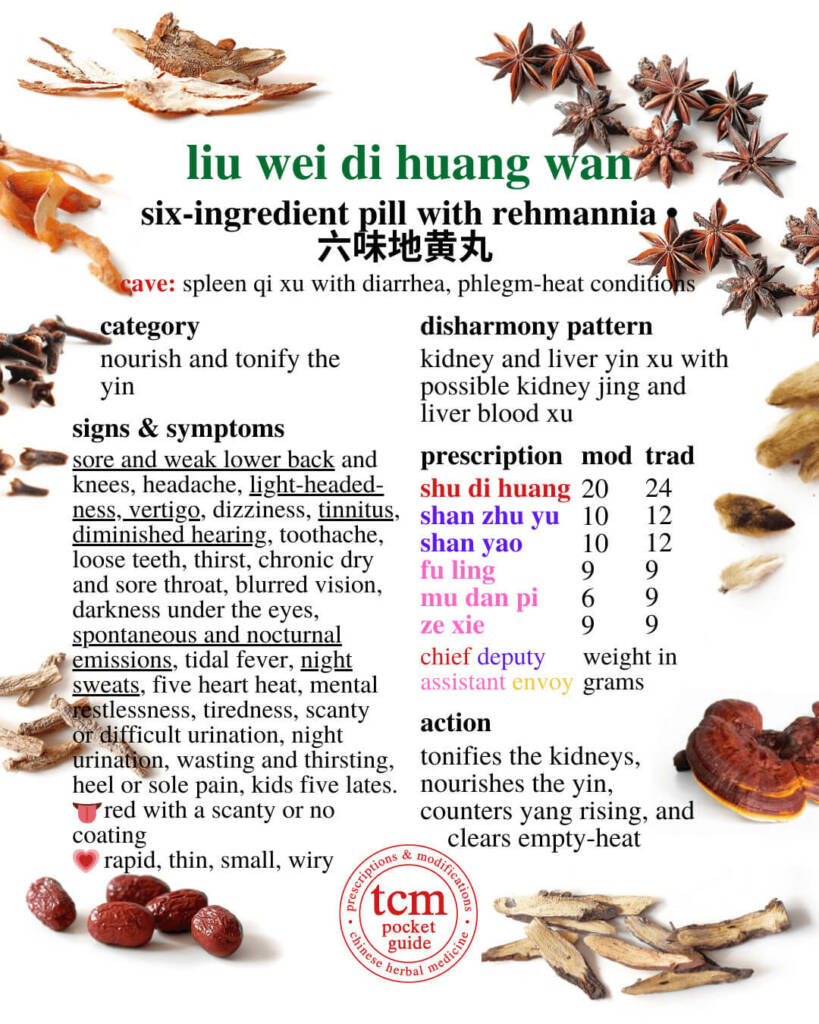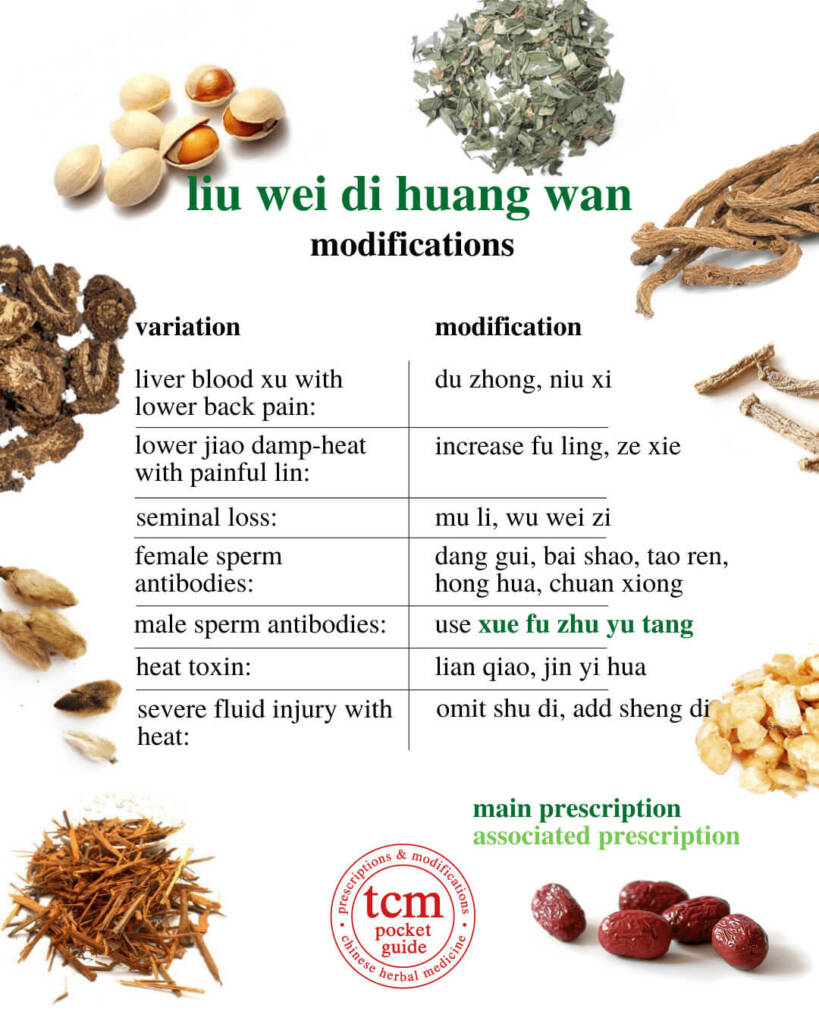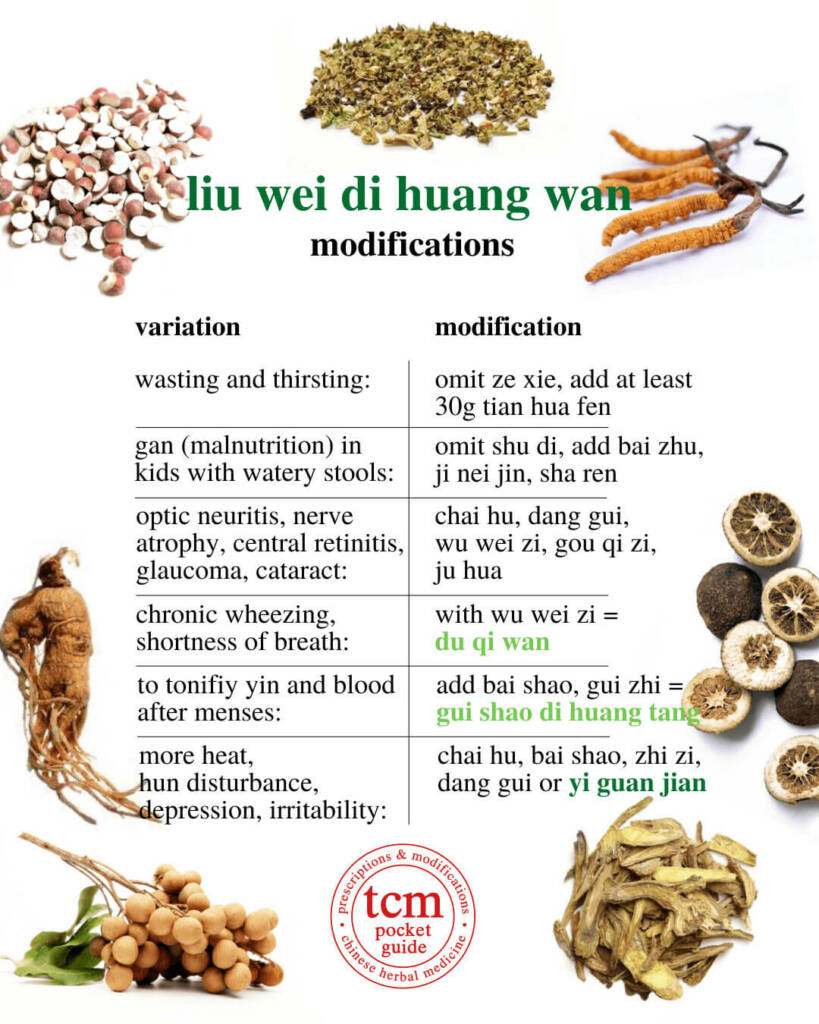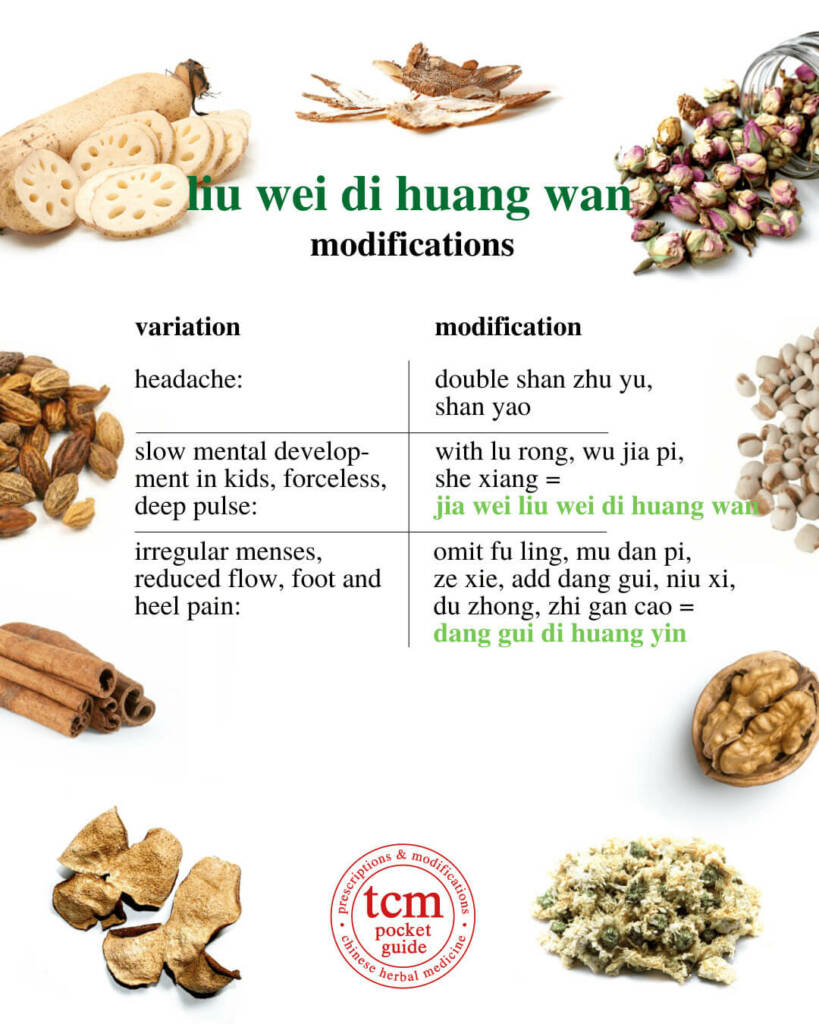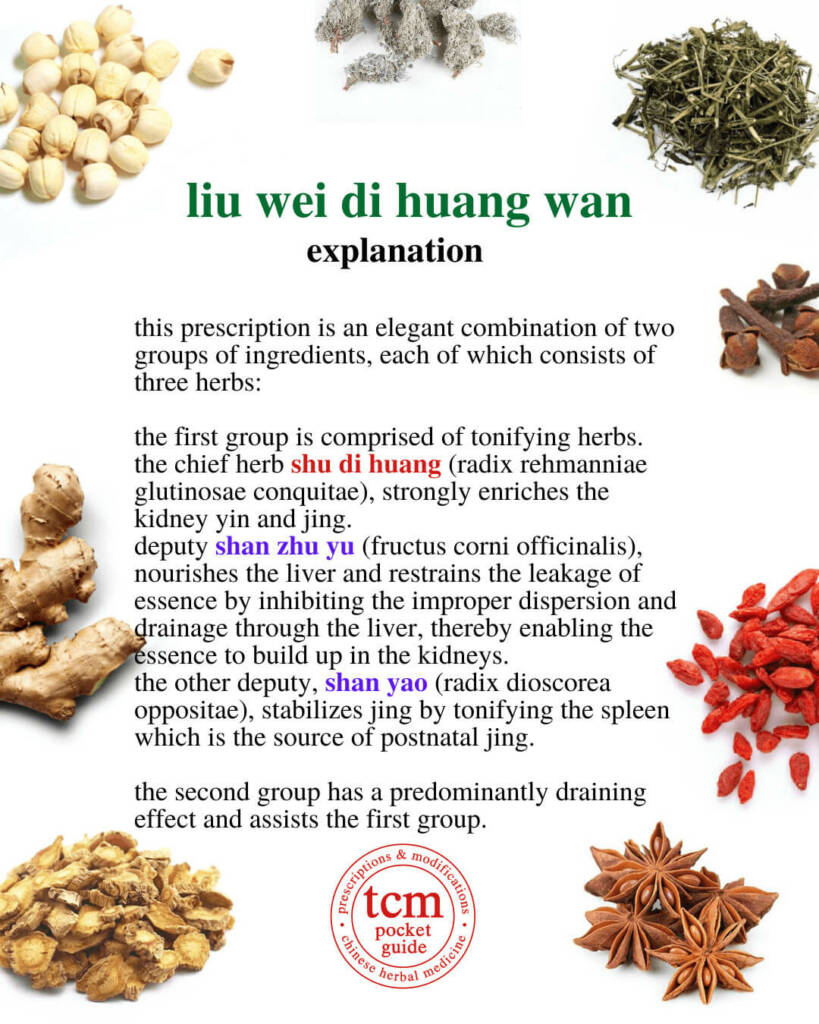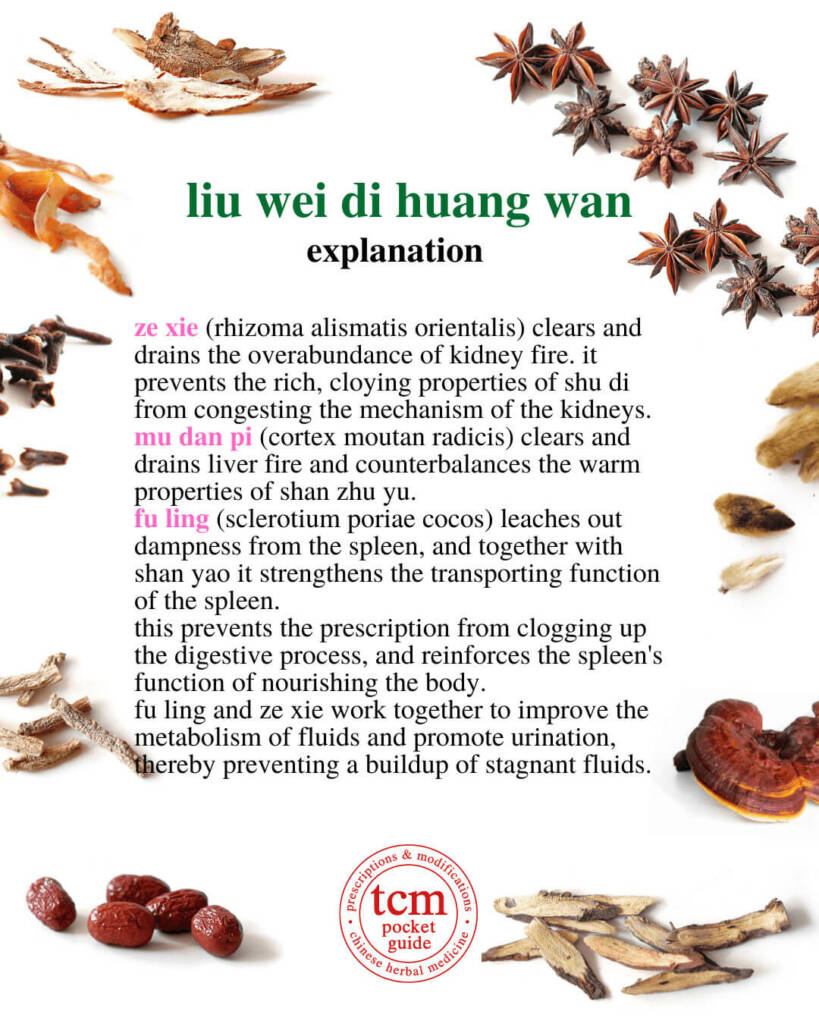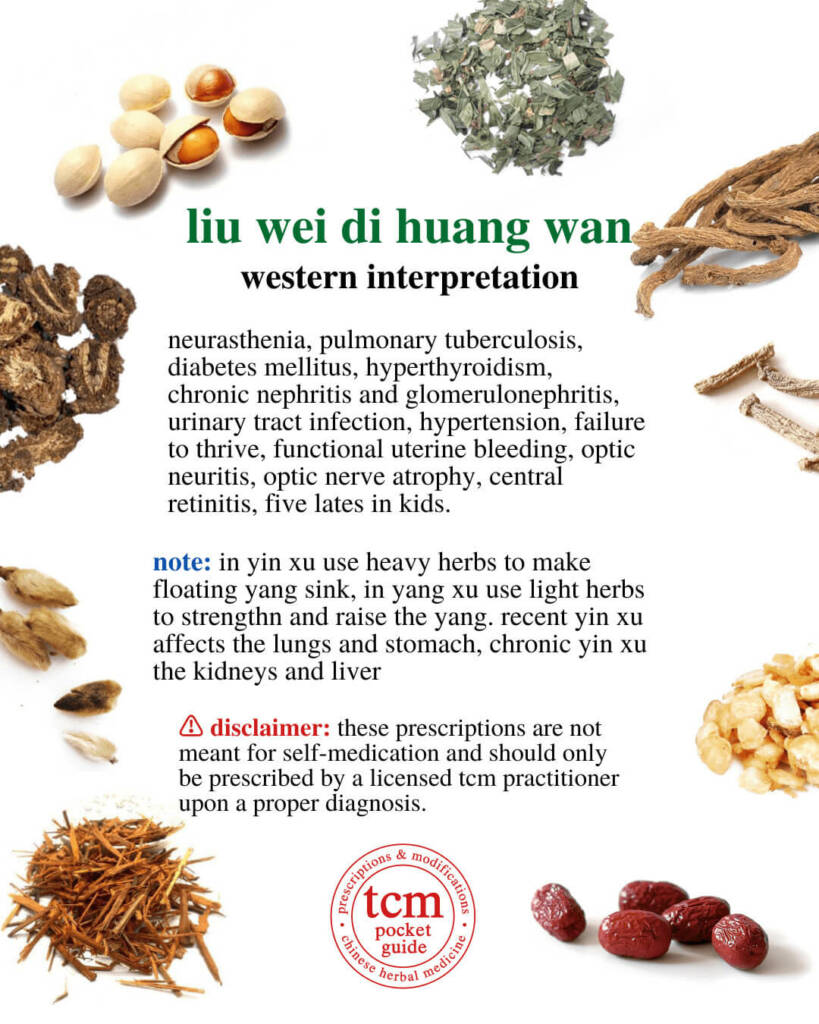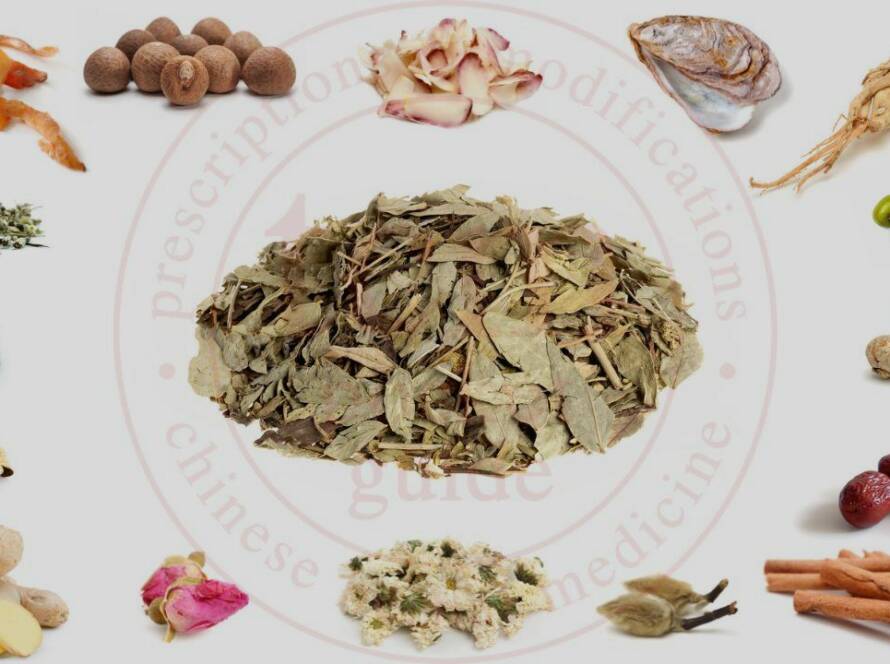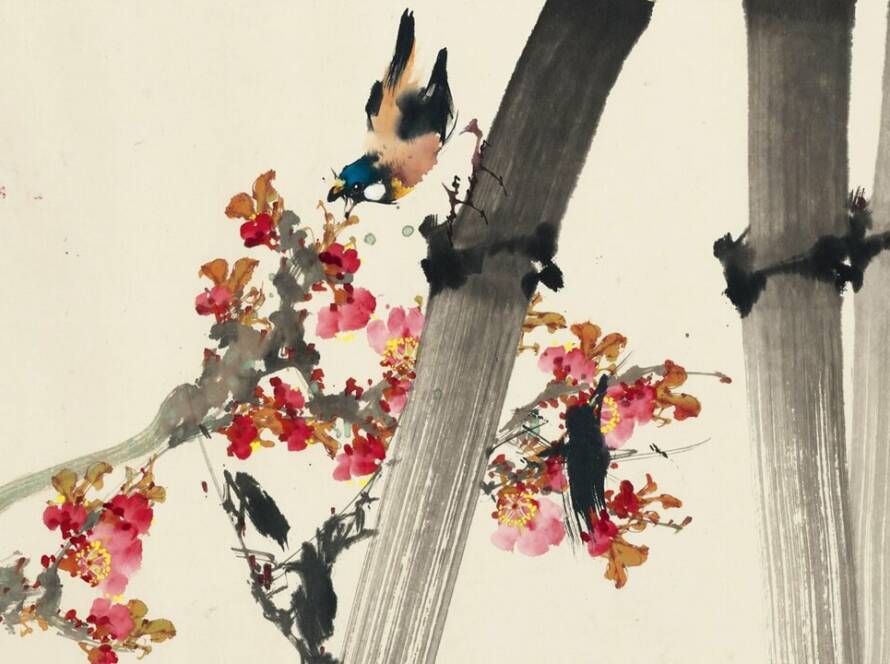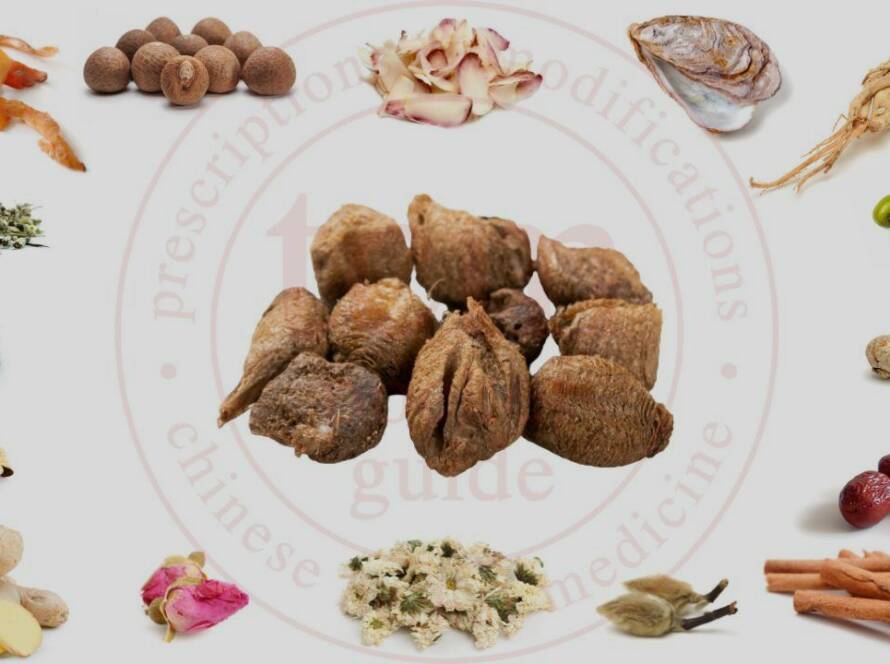liù wèi dì huáng wán is used for patterns with
kidney yin deficiency, heart and kidney yin deficiency, liver and kidney yin deficiency, wei atrophy disorder from liver and kidney deficiency, wasting and thirsting disorder.
symptoms indicating the use of liù wèi dì huáng wán
lower back pain, painful and weak knee and legs, foot pain, light headedness, dizziness, vertigo, tinnitus, deafness, reduced hearing, blurred vision, chronic dry, sore throat, dry mouth, thirst, thoothache, loose teeth, diabetes, muscle weakness, dry skin, evening heat, five-heart heat, night sweats, steaming bone disorder, spontaneous and nocturnal emissions, numb and weak waist and knees, heel pain.
western interpretation of liù wèi dì huáng wán
neurasthenia, pulmonary tuberculosis, diabetes mellitus, hyperthyroidism, chronic nephritis and glomerulonephritis, urinary tract infection, hypertension, failure to thrive, functional uterine bleeding, optic neuritis, optic nerve atrophy, central retinitis, five lates in kids.
explanation of the mechanism
this is the classic presentation of kidney and liver yin deficiency. the kidneys are involved in a few different ways:
the lower back is the abode of the kidneys, which are also associated with the bones and are responsible for generating marrow (which gives the bones their resiliency and strength). when the kidneys are weak, the marrow will become depleted and there will be a general weakness of the skeletal structure which is focused in the area of the body most closely associated with the kidneys, the lower back and legs.
kidney and liver yin deficiency also means that the essence (kidneys) and blood (liver) are not flourishing and are therefore unable to nourish the upper parts of the body, primarily the sensory orifices. the eyes are nourished by the liver; lack of nourishment manifests as light-headedness and vertigo. the ears are nourished by the kidneys; lack of nourishment manifests as tinnitus and diminished hearing.
when the yin is deficient, it is unable to retain substances during the night, which is the time associated with yin. this causes night sweats and nocturnal emissions the deficient yin is also unable to preserve the essence, which is manifested in men as spontaneous emissions. yin deficiency and internally-generated heat is re-flected in the red color of the tongue and the less-than-normal moisture (little or no coating), and also in the pulse which holds little volume (thin) and is rapid.
depending on the individual and the particular etiology of kidney and liver yin deficiency, other problems may also occur:
if the heat from deficiency is more severe, the patient will present with hot palms and soles, a flushed face, or a dry and sore throat, if the heat transforms into fire and ascends to the teeth (which are connected with the kidneys), there will be toothache. and if the kidney qi is also unstable, there will be wasting and thirsting disorder with copious urination.
(bensky & barolet)

created with love in switzerland 🇨🇭
feel free to share this content:


